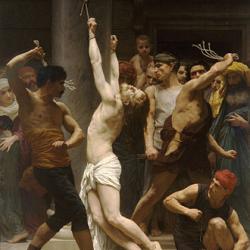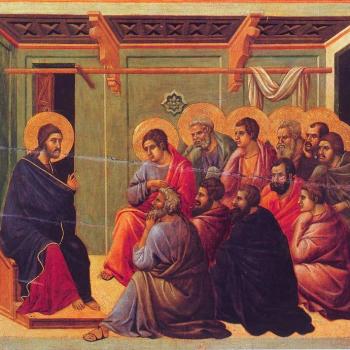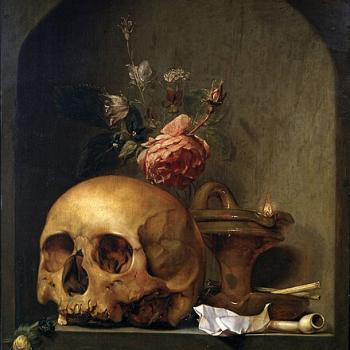Companions on the Journey
Lent Week 3
Monday March 1, 2021
There is nothing Catholic that does not stem from the Jewish roots of the One, Holy, Catholic and Apostolic Church. It is what Our God, the only God, the God of Abraham, Isaac, and Jacob, the God Who sent His Son into the world, has given – to the Jewish People and to us, both Jew and Gentile, who would, by faith and baptism, be grafted and regrafted onto the Root which is Israel (Romans 11:11-24). And the only reason we can be grafted onto the Root is because that which Our Lord gave the Jewish People as a promise of redemption was fulfilled – after 1,500 years of the Mosaic Law – in the once-for-all sacrifice of the true Lamb of God, the Messiah, our Lord Jesus Christ. (cf. Leviticus chapter 16, especially vv. 29-34; also 1 Corintians 5:7, 1 Peter 2:4, Hebrews 9:8-14).- Mother Miriam of the Lamb of God Mother of Israel’s Hope.org (October 11, 2019)
“The Jewish religion is not ‘extrinsic’ to us, but in a certain way is ‘intrinsic’ to our own religion. With Judaism, therefore, we have a relationship which we do not have with any other religion. You are our dearly beloved brothers, and in a certain way, it could be said that you are our elder brothers.” Pope Saint John Paul II, Speech at the Great Synagogue (April 14, 1986)
Tuesday March 2, 2021
Jewish ethnicity in itself does not save. The Old Covenant is no longer salvific. Nevertheless, the Jewish people continue as a sign to the Gentiles, and Gentiles should revere the Jewish people as kinsmen of Christ. After all, is it not the case that Catholics worship a Jewish Rabbi as the very Son of God and identify Him as the Jewish Messiah? The faith and flesh of Israel are integral to the humanity of the Redeemer. Catholics also show great veneration for the Jewish maiden, Mary the Mother of the Messiah and extol her as the Queen of Heaven. The original Apostles, from which every Catholic bishop succeeds, were Jewish. Jewish authors wrote every book of the Catholic Bible, with the exception of the Gospel of Saint Luke and the Book of Acts. The liturgy of the Mass derives from the prayers of the Jewish synagogue and temple. We teach our children the Hebrew stories about Noah, Abraham, Joseph, Moses, David, Esther, and Daniel. We employ Hebrew words in our liturgy: “Amen” and “Alleluia.” The vestments, incense, candles, processions, jubilees, and many of the priestly customs likewise derive from Jewish practice. Many Jews who visit a Catholic Mass often comment that it all seems so very Jewish. The reason for this is that the Catholic Church grew out of the Judaism of its original Rabbi and High Priest, Jesus the Messiah
Taylor Marshall-The Crucified Rabbi: Judaism and the Origins of Catholic Christianity (The Origins of Catholicism Book 1)
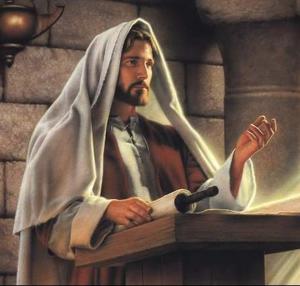
Wednesday March 3, 2021
Saint Katharine Drexel Feast Day
In the hands of a skilled builder-maker, what is raw and imperfect can be still become useful, valued, and eventually prized. Perhaps only a rabbi who understood that, and had been trained to find and select the right materials for the right project, could ever have chosen a rock as rough and thick as Peter upon which to build his church.
On the hill at Golgotha, what the first-century Jews saw is what is before our eyes, still: the rabbi on the cross, an immortal Beauty meant to save the world.
The rabbi, whose Goodness continually inspires intrinsically-lovely-but-flawed humanity to submit to his creative hand and be carved and smoothed by whatever means he chooses—including the most confounding of tools, his cross—that they too might become Good.
The rabbi so imbued with Truth that it pours forth from him along with his very blood as he teaches from the height of his torments: “Father, forgive them…”
–Elizabeth Scalia, Lessons from the Rabbi on the Cross (March 29, 2018) Word on Fire
Thursday March 4, 2021
Saint Casimir Feast Day
In ancient Jewish Scripture, “I am” was the name of God—the God who had appeared to Moses in the burning bush on Mount Sinai (see Exodus 3:14). In a first-century Jewish context, for Jesus to take the name “I am” as his own is tantamount to claiming to be God. Should there be any doubt about this, notice that some of the people in Jesus’s Jewish audience get the point. That’s why they respond by accusing him of “blasphemy” for making himself “God” (Greek theos). They even take up stones to kill him. –Brant Pitre, The Case for Jesus (2016)
Friday March 5, 2021
I also had the mistaken belief that the Catholic Faith was “anti-Semitic” and denigrated Jews and Judaism. Nothing could be further from the truth. What greater honor could be accorded Judaism than to say that it is the religion of God Himself, and when God became Man, He became a Jew? What greater honor could be accorded to the Jewish race than to say that they alone, among all the peoples of the earth, are related by blood to the incarnate God? Or that it was from their race that came the only perfect human creature, the Blessed Virgin Mary? Even as the most fervent, enthusiastic Jew, I never could have ascribed a glory to Judaism comparable to that assigned it by the Catholic Faith.
Roy H. Schoeman Ignatius Insight Interview (July 12, 2004)
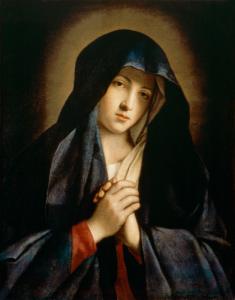
Saturday March 6, 2021
It is not enough to sit back and say “Antisemitism is wrong.” We cannot merely be passive bystanders. It is incumbent upon Christians – and Catholics, especially – to fight it where it appears. The priests and clergy who opposed the Nazis and then died in the death camps demand this of us. We must fight the dog whistles, the slurs, and the other small acts that lead towards reshaping the narrative.
The Holocaust did not just suddenly “happen.” It occurred through small acts of hate and discrimination over many years before it actually exploded into violence. Society allowed it to happen and turned a blind eye from the atrocities. It occurred in a nominally Christian culture. The Holocaust is a dark stain on the soul of Christianity and must never be allowed to happen again.
Someday, soon, we will live in a world without living witnesses to one of the greatest atrocities in history.
How we go forward in that world will be a measure of our humanity.-Angry Staff Officer How Will We Remember the Holocaust after those who Lived it are Gone? (September 2, 2019) With the Atheists in the Foxholes
Sunday March 7, 2021
Third Sunday of Lent
Since the Passover of the Jews was near, Jesus went up to Jerusalem. He found in the temple area those who sold oxen, sheep, and doves, as well as the money changers seated there.
He made a whip out of cords and drove them all out of the temple area, with the sheep and oxen, and spilled the coins of the money changers and overturned their tables,
and to those who sold doves he said,
“Take these out of here, and stop making my Father’s house a marketplace.”
His disciples recalled the words of Scripture,
Zeal for your house will consume me.
At this the Jews answered and said to him,“What sign can you show us for doing this?”
Jesus answered and said to them,
“Destroy this temple and in three days I will raise it up.”
The Jews said,
“This temple has been under construction for forty-six years, and you will raise it up in three days?”
But he was speaking about the temple of his body.Therefore, when he was raised from the dead, his disciples remembered that he had said this,
and they came to believe the Scripture and the word Jesus had spoken.
While he was in Jerusalem for the feast of Passover, many began to believe in his name when they saw the signs he was doing.
But Jesus would not trust himself to them because he knew them all, and did not need anyone to testify about human nature.
He himself understood it well.
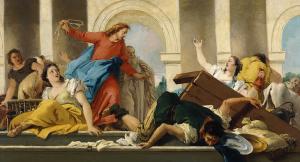
Check Out previous Weeks




